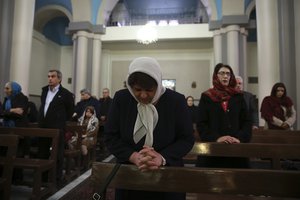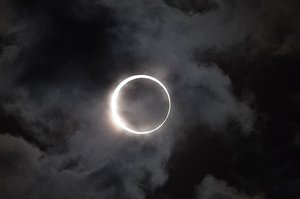
Television (band)
Television is an American rock band, formed in New York City in 1973 and considered influential in the development of punk and alternative music.
Television was an early fixture of CBGB and the 1970s New York rock scene. Although they recorded in a stripped-down, guitar-based manner similar to their punk contemporaries, the band's music was by comparison clean, improvisational, and technically proficient, drawing influence from avant-garde jazz and 1960s rock. The group's debut album, Marquee Moon, is often considered one of the defining releases of the punk era.
History
Early history and formation
Television's roots can be traced to the teenage friendship between Tom Verlaine and Richard Hell. The duo met at Sanford School in Hockessin, Delaware, from which they ran away. Both moved to New York, separately, in the early 1970s, aspiring to be poets.
Their first group together was the Neon Boys, consisting of Verlaine on guitar and vocals, Hell on bass and vocals and Billy Ficca on drums. The group lasted from late 1972 to late 1973. A 7-inch record featuring "That's All I Know (Right Now)" and "Love Comes in Spurts" was released in 1980.

Television (film)
Television (Bengali: টেলিভিশন) is a 2013 Bangladeshi comedy drama film directed by Mostofa Sarwar Farooki and starring Shahir Huda Rumi, Chanchal Chowdhury, Mosharraf Karim, Nusrat Imroz Tisha, and others. The film was selected as the Bangladeshi entry for the Best Foreign Language Film at the 86th Academy Awards, but it was not nominated. The film originates from the director's mother who had the same destiny as the Chairman in the film, who was incapable of going to Hajj at the very ending of the film.
Plot
As a leader of the local community, Chairman Amin (Shahir Huda Rumi) bans every kind of image in his water-locked village in rural Bangladesh. He even goes on to claim that imagination is also sinful since it gives one the license to infiltrate into any prohibited territory. But change is a desperate wind that is difficult to resist by shutting the window. The tension between this traditional window and modern wind grows to such an extent that it starts to leave a ripple effect on the lives of a group of typically colorful, eccentric, and emotional people living in that village. But at the very end of the film, Television, which he hated so much, comes to the rescue and helps Chairman Amin reach a transcendental state where he and his God are unified. A new twist to the story makes him embrace IMAGE and IMAGINATION.
TV (disambiguation)
TV or television is a telecommunication medium for transmitting and receiving moving images and sound.
TV may also refer to:
- .tv, the country code top-level domain of Tuvalu

Adventure!
Adventure! is a pulp action role-playing game originally printed by White Wolf Game Studio, the third and last book in the Trinity Universe line of games. The game, printed in black and white on pulp-like sepia paper to resemble a period piece, was conceived as a one-book game line, and was never supported by official supplements. Despite having a vocal fanbase, the Trinity Universe line was discontinued shortly after the game's publication; a d20 system version was released in 2004. In 2002, Adventure! won the Origins Award for Best Role-Playing Game of 2001.Onyx Path Publishing has recently acquired the rights to the Trinity Universe and has announced its intention to release a new edition of Adventure!
Setting
The game is set in the 1920s and therefore at the origin of the Trinity Universe timeline. The release of unknown Telluric energy has led to the appearance of a number of particularly gifted characters, whose actions have the potential for shaping the future history of the world. The Aeon Society for Gentlemen, founded by philanthropist Maxwell Mercer, is trying to bring together as many "Inspired" characters as possible, supporting and coordinating them in their effort for the betterment of all of humanity. But darkness lurks, and Mercer's champions will have to face it in the most unlikely locales. There are three archetypes ("character classes") for players to choose from:
Adventure (disambiguation)
An adventure is an undertaking into the unknown, often having a connotation of danger and excitement.
Adventure or The Adventure may also refer to:
Arts and entertainment
Titled works
Games
Music

Adventure (Dungeons & Dragons)
In the Dungeons & Dragons role-playing game, an adventure or module is a pre-packaged book or box set that helps the Dungeon Master manage the plot or story of a game. The term adventure is currently used by the game's publisher Wizards of the Coast.
In early editions of the game these publications were commonly referred to as modules, which stems from the term dungeon module, used to refer to the earliest adventures published by TSR, with other variations on the module name appearing on latter adventures. The term module continued to be popular among players of the original Dungeons & Dragons and Advanced Dungeons & Dragons even after newer publications were labeled adventure. Adventures that appear as a part of a larger accessory are often referred to as scenarios.
The exact differences between the terms adventure, module, scenario, and accessory are hard to precisely define in Dungeons & Dragons terminology, as they all have been used in different ways.
History of official modules and adventures
Adventure
We shuffled our faces laughin' like fish
Really flip flappin' we had not wish
You said, "Look! The ceiling is down."
You said 5 times with that beautiful frown
Adventure I love Adventure
Adventure I need a new Adventure now
We laugh and we dance where the river once ran
Blinkin' our eyes ansdwavin' our hands
We jump in the water that never makes sense
So full of glee and so full o' suspense
Adventure
Air couldn't touch us as we lay on the wall...
Watchin' a play never playin' at all
Movin' through what we could not resist
Moved by a hand that was never a fist

Television (band)
Television is an American rock band, formed in New York City in 1973 and considered influential in the development of punk and alternative music.
Television was an early fixture of CBGB and the 1970s New York rock scene. Although they recorded in a stripped-down, guitar-based manner similar to their punk contemporaries, the band's music was by comparison clean, improvisational, and technically proficient, drawing influence from avant-garde jazz and 1960s rock. The group's debut album, Marquee Moon, is often considered one of the defining releases of the punk era.
History
Early history and formation
Television's roots can be traced to the teenage friendship between Tom Verlaine and Richard Hell. The duo met at Sanford School in Hockessin, Delaware, from which they ran away. Both moved to New York, separately, in the early 1970s, aspiring to be poets.
Their first group together was the Neon Boys, consisting of Verlaine on guitar and vocals, Hell on bass and vocals and Billy Ficca on drums. The group lasted from late 1972 to late 1973. A 7-inch record featuring "That's All I Know (Right Now)" and "Love Comes in Spurts" was released in 1980.
Latest News for: television adventure
Memorial Day Deals: Save on Indiana Jones, Batman, and Game of Thrones Blu-rays!
Sarasota's Nik Wallenda to wirewalk in Times Square
 Herald Tribune
23 May 2019
Herald Tribune
23 May 2019
Lazy speckled trout filling their bellies along stretches of sand
 The Advocate
23 May 2019
The Advocate
23 May 2019
6 Classic Disney Cartoons That Should Get The Live-Action Treatment After Rescue Rangers
Gemini Sun Day One by Holiday Mathis
‘Doctor Who: Edge of Time’ Feature-Length VR Game Coming This September
MM3rdQB: Once mortal enemies, jocks and nerds are now allies (and it's about time)
Shannon is a 'smarty pants'
 Missoulian
18 May 2019
Missoulian
18 May 2019
Of The Outdoors: Mother Nature’s Garden
 Yankton Daily Press
18 May 2019
Yankton Daily Press
18 May 2019
'Big Bang Theory' exits TV airwaves with emotional episode
LETTER: American culture and school violence
Events
BC-AP Entertainment Digest, 1st Ld-Writethru
 Hastings Tribune
16 May 2019
Hastings Tribune
16 May 2019
- 1
- 2
- Next page »





































